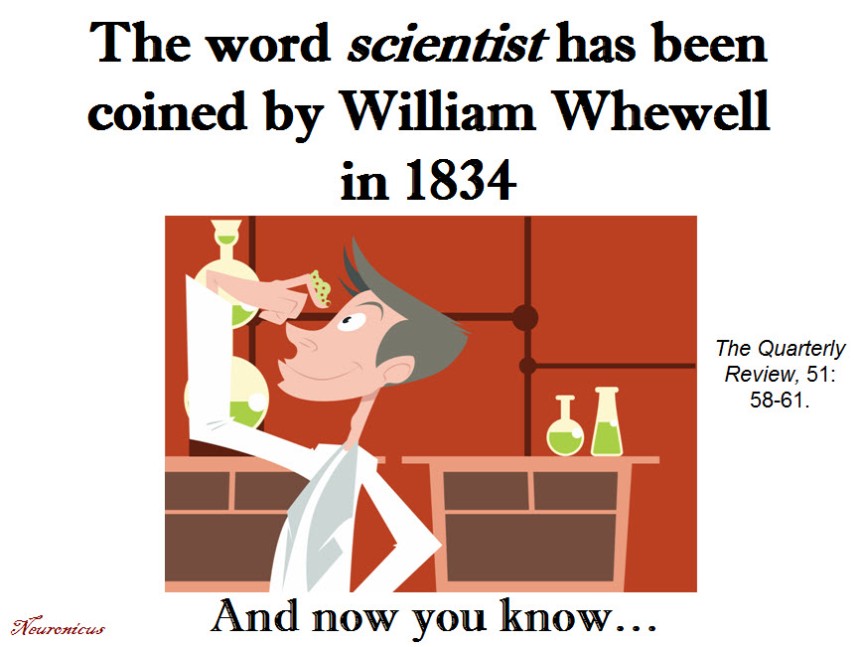Scientist, by any other name…
History of science is, unfortunately, not among the mandatory classes required for earning a diploma that allows oneself to be called a scientist. Worrisomely, nor is Logic as a formal class. All the more the pity because in the Middle Ages, when the word science entered the English language, to have scientific knowledge meant you have arrived at it by following the Aristotelian way of logical reasoning (a.k.a deductions and inductions). To be fair, the word existed already in Romance languages with the same meaning: new knowledge obtained by applying the rules of Aristotelian syllogisms. By the way, Aristotle is also the guy to whom we owe the basis of the scientific method, but that’s a story for another day.
Although words like scientific or science were altogether frequently used with regards of the scholarly endeavors of the ladies and gentlemen of the early 19th Century (yes, there were ladies too that dabbled into the sciences, even if sometimes it was only to write about the spectacular discoveries and controversies of their time), the term scientist has been officially coined in 1834 by William Whewell. A man truly blessed in the art of words, being credited with coining a lot of other famous words like anode and physicist, he proposed the word in a review of a science popularization book written by one Mrs. Somerville. The circumstance of how this came to be is masterly imparted to us by Sydney Ross in a superb historical account of the word scientist, published in 1962.
For the rounded scientist or for the merely curious, I truly recommend the lecture of the referenced papers. They’re delightful!

Reference 1. [Whewell W] (1834). Art. III. [Review of] On the Connexion of the Physical Sciences. By Mrs. Somerville. The Quarterly Review, 51: 58-61. FULLTEXT PDF at GoogleBooks
Reference 2. Ross S (1962). Scientist: The story of a word, Annals of Science, 18:2, 65-85, DOI: 10.1080/00033796200202722. FREE FULLTEXT PDF
P.S. I checked and Wikipedia is correct with the following statement:
“To be exact, the person coined the term scientist was referred to in Whewell 1834 only as “some ingenious gentleman.” Ross added a comment that this “some ingenious gentleman” was Whewell himself, without giving the reason for the identification. Ross 1962, p.72.”
Even if, by some very slim chance, the “ingenious gentleman” was not Whewell himself, Whewell did propose the term scientist in a more formal manner six years later in 1840 bringing more than just linguistic justifications, like the diversity of those engaged in scientific endeavors and how they don’t call themselves natural philosophers anymore.
By Neuronicus, 9 August 2016

